Our land doesn’t speak our language
Singer-songwriter Lina Makoul on being Palestinian
Aasiyah Faryal, Jordan News
last updated: Dec 07,2022

Through a door
tucked away up a couple of flights of stairs in Jabal LuLuweibdeh, I found Lina
Makoul excitedly trying on her discoveries at Second Base, a thrift and vintage
clothing shop.اضافة اعلان
“This is my favorite shop in Amman. Every time I come, I always get at least one or two things”, she told me. “The clothes are great, but I love shopping here because it’s ... sustainable.”
Sustainability is a theme for singer-songwriter Makoul, featuring heavily in the stories of her life and of Amman, where she works to create music.
Makoul knows first-hand what it is like to be a Palestinian living “in ‘48” — or the lands that were seized from Palestinians during the Nakba in 1948 — under occupation. “I’m not used to being in a place that’s completely Arab. (Amman), everything is in Arabic — the adverts, the street signs, and we get confused,” she said.
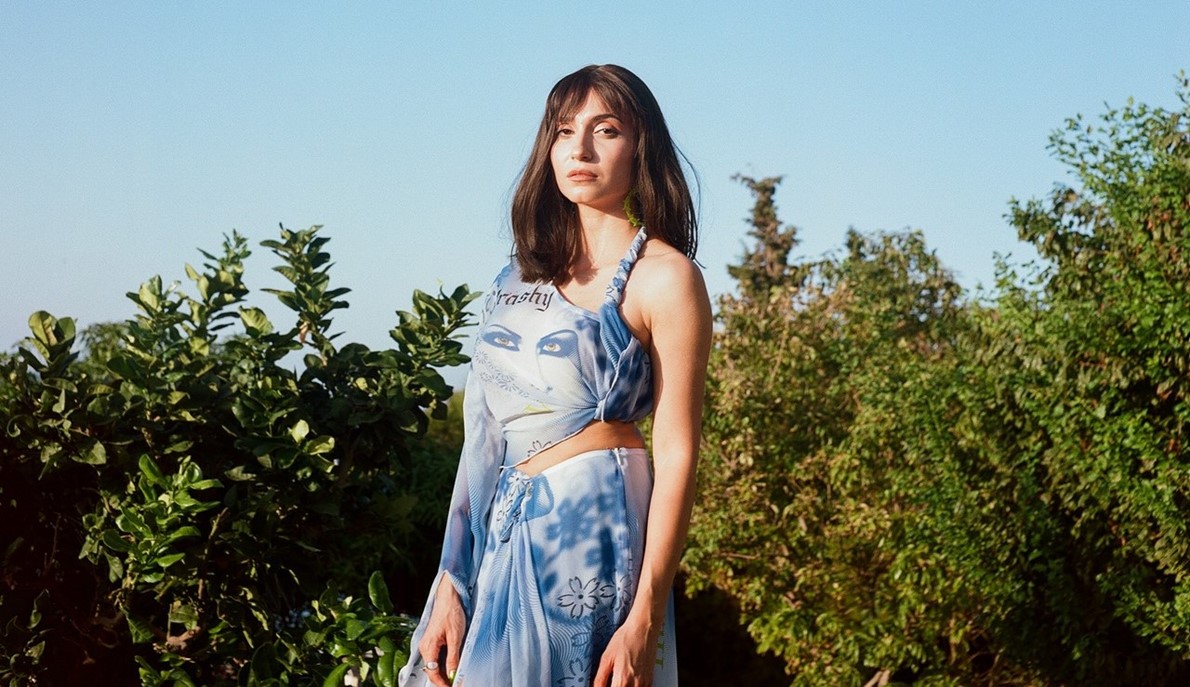
“We come from a place where there’s conflict between our identity and what the eye sees. We live in our land, but our land doesn’t speak our language.”
However, in Amman, Makoul has discovered new ideas of what it means to be Palestinian, to sustain that identity in a “new world” that belongs to those who migrated, generations that have not grown up in Palestine but have a particular idea of what it is like, and live the stories of how the occupation affects Palestinians, on the outside.
“Here,” she said of the capital, “(Palestinians) grew up on the ‘Old Palestine’.” In the West Bank and Gaza, on the other hand, “we’re growing up in a Palestine that we’re trying to maintain.”
“An Uber driver here once said to me ‘We (Palestinians in Jordan) are more patriotic than Palestinians in Palestine,’” the artist continued. “I replied to him saying, ‘You’re right. We’re living in Palestine, but Palestine is living in you.’ That’s the difference.”
For the artist, Amman as a place also represents and collaboration, giving hope to what can happen when Palestinians and Jordanians work together. And the artist’s career embodies this: her current producer, Nasir Al-Bashir, is a young Jordanian who operates out of Levant Studios in Amman. “It’s beautiful to work with someone who understands who and what you are, where you’ve come from and where you’re going,” Makoul said of her producer. “Amman, to me, is understanding each other.”
A silent invasion
Many picture the Israeli occupation as settlers attacking Palestinians, invading their homes and land. On the news and through social media, we see a physical resistance: throwing stones at tanks and fighting against soldiers. And while it is true that the occupation violently affects Gazans and those in the West Bank, Makoul talks of a different occupation in ’48.
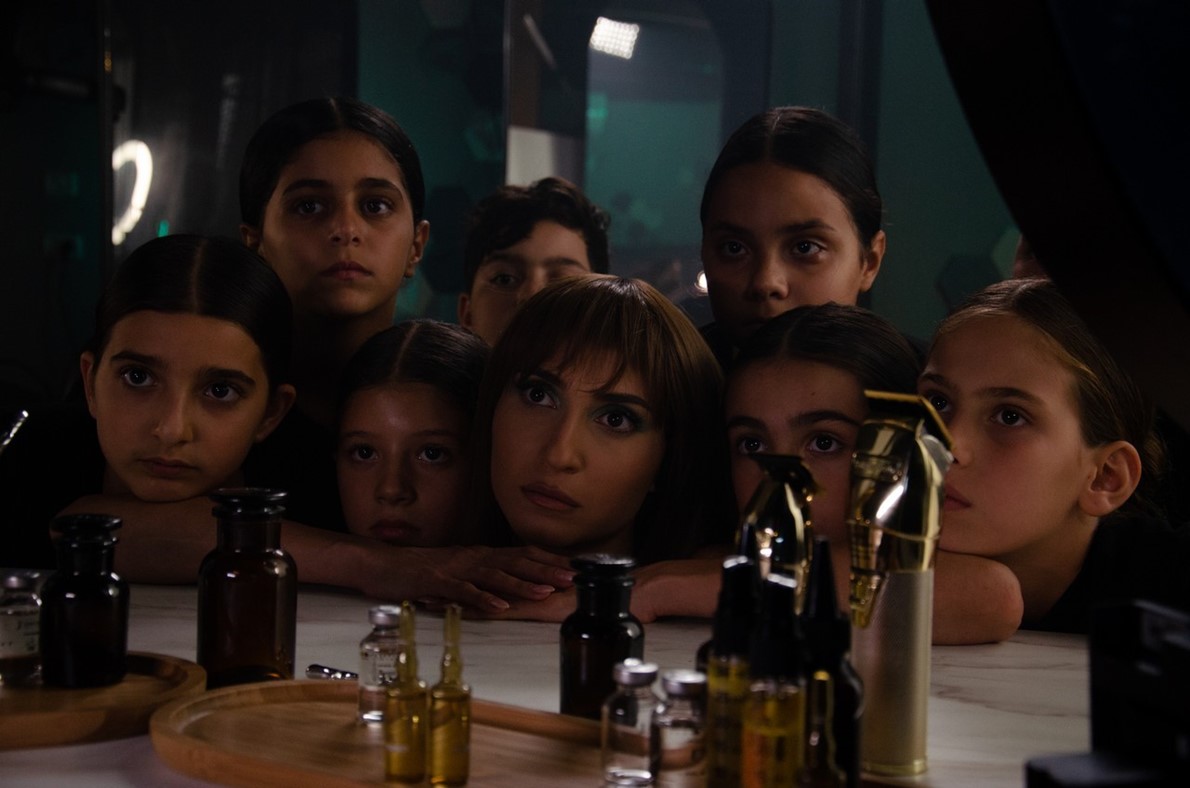
“These are invaders on your land, but they’re not physically troubling you. You don’t see a tank in the street, or a soldier shooting in the middle of Akka or Haifa,” she explained. “You’ll see a soldier walking in the mall or coming out of your apartment building and that’s normal. No one talks about it.”
“We’re fighting the racism that we face every day, but you always have the guilt that you’re living a peaceful life. You feel like you’re experiencing the occupation, but you can’t explain how. Over time, I understood that the occupation in ‘48 is mental, cultural, linguistic, and intellectual, not visual.”
She referenced one of her top songs. “Like I say in ‘Shway Shway’, it’s taken me time to overcome the brainwashing. We have to go through a spiritual and patriotic awakening.”
‘In Arabic’
After winning The Voice and being launched into a music career, Makoul became deeply depressed. The day she decided to ring a lawyer to leave her label was the same day that she called up a therapist to get treatment for her mental health.
“I couldn’t write, I had writer’s block. But therapy helped me understand how I think, where my anxiety attacks come from, and how to deal with them. Through therapy, I learned to simplify complicated matters. To dive deeper instead of staying on the surface.”
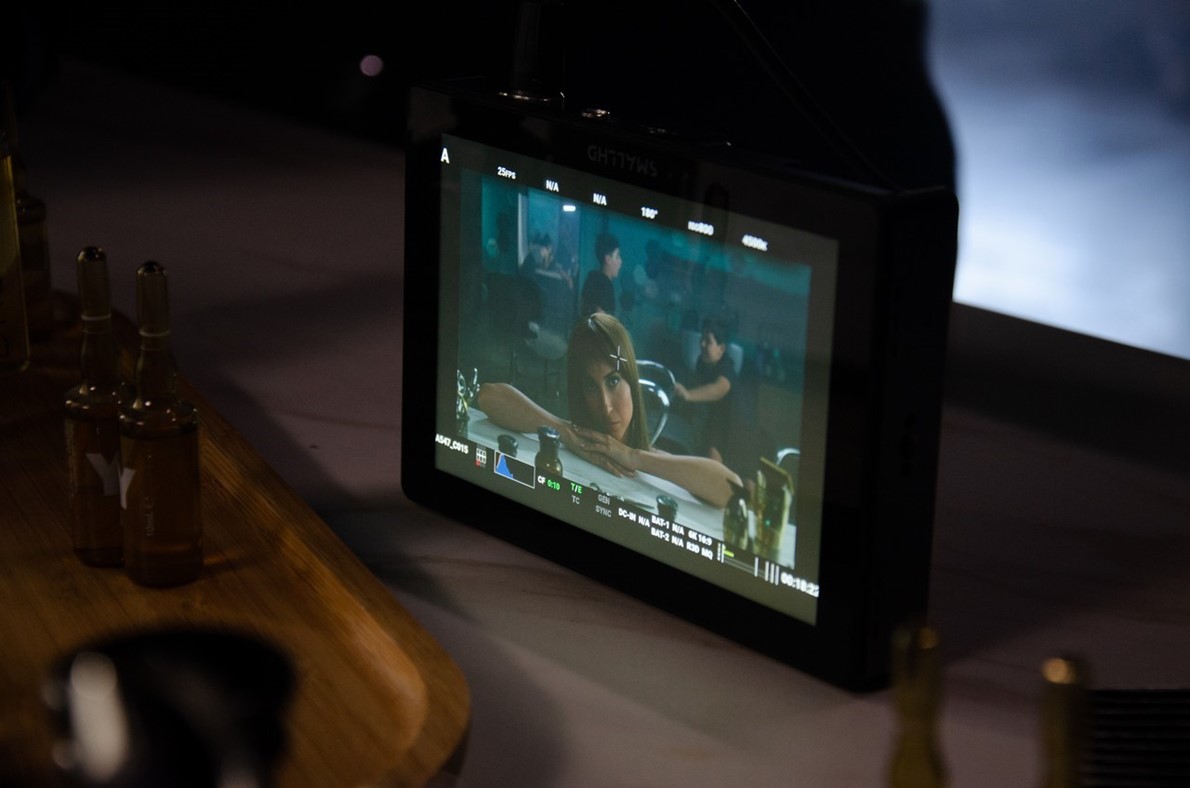
Therapy allowed Makoul to overcome her depression and writer’s block and begin her journey of resistance as an independent artist. Her change in style began with language.
“Once, I was asked, ‘Why don’t you write in Arabic?’ I said ‘It’s easier for me to write in English.’ They said, ‘Are you actually just scared to sing in Arabic?’ They were right. I wrote ‘Lil Abad’ as a gift, but through this process, I decided that my music should be about my life.”
A defining moment in Makoul’s life and that of many Palestinians came in May 2021 with the Israeli attack on the Sheikh Jarrah neighborhood in East Jerusalem. Palestinian youth in ‘48 and allies around the world took to the streets to protest the Israelis’ treatment of the Palestinians. The anger they felt impacted people in different ways. For Makoul, it affected her writing process.
“It took a few months to understand how I wanted to write. It started with personal topics, and graduated to more general ones,” she explained. “I write about everything — I group concepts together, then build the song. So each song incorporates social, economic, national and political issues altogether. When I have an ability, I have a responsibility.”
A budding music scene
This motivation to use her music for the betterment of herself and her society is mirrored in the development of Palestine’s rapidly growing music scene. Artists in the country are working to establish a bona-fide industry, and Makoul is contributing to building that industry.
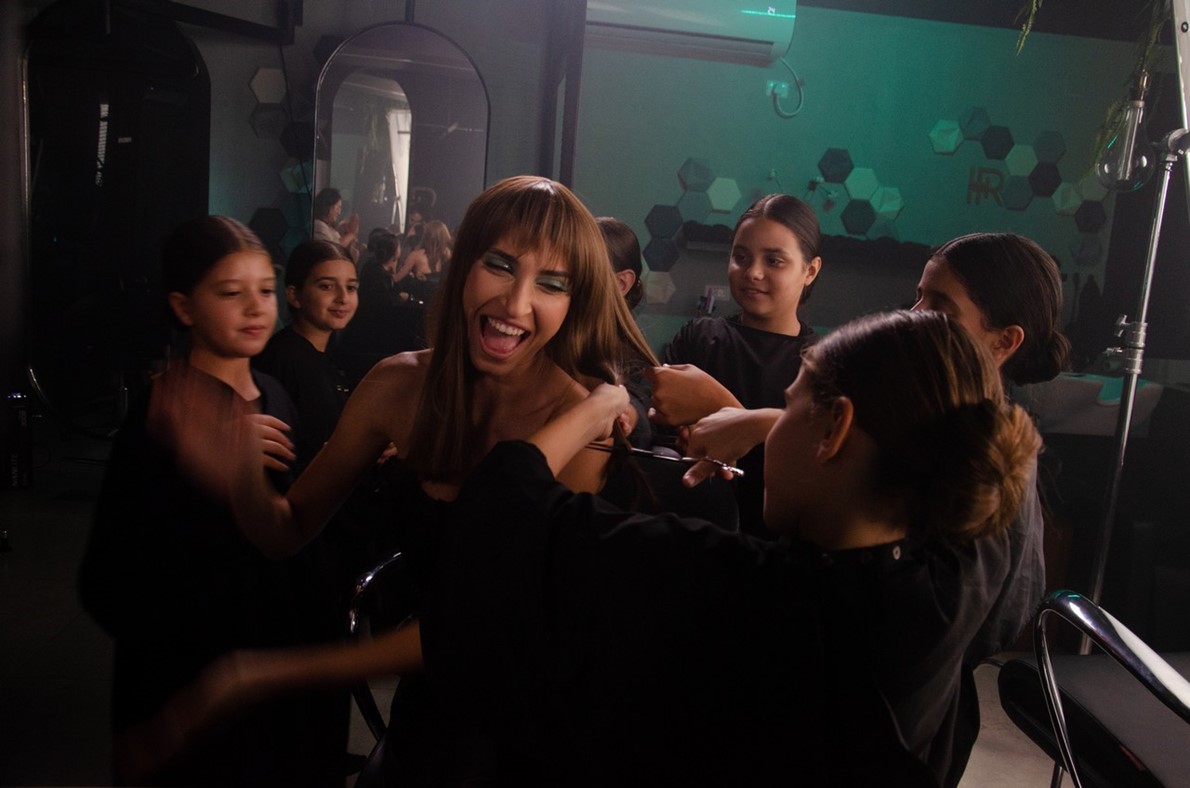
“I won’t leave my country for somewhere where there is an industry, just because it’s easier for me. No, I’ll do my best to build an industry there. I think as an individual, but move as a collective.”
As the independent artist began creating music once again, she expressed her collective ideals through collaborations.
“My first collaboration was “Asli Barri” with Maysa Daw, Yusor Hamid, Noel Kharman and Nancy Hawa. It was beautiful — the Arab world’s first female collaboration. It wasn’t made for commercial gain, but for charity,” Makoul reflected.
But this journey is inherently difficult, and she expanded on a previous discussion we had had about the challenges of being an independent artist, especially in Palestine.
“Anxiety, lack of sleep, there’s a lot of pressure. You have to develop your brain to control eight departments as one person,” she said. “It’s insane, but possible. And I’ll say it again: therapy was key. And just to flow and trust.”
‘Doing my part’
Through flowing and trusting, Makoul is putting into action her plans regarding her music and the Palestinian industry.
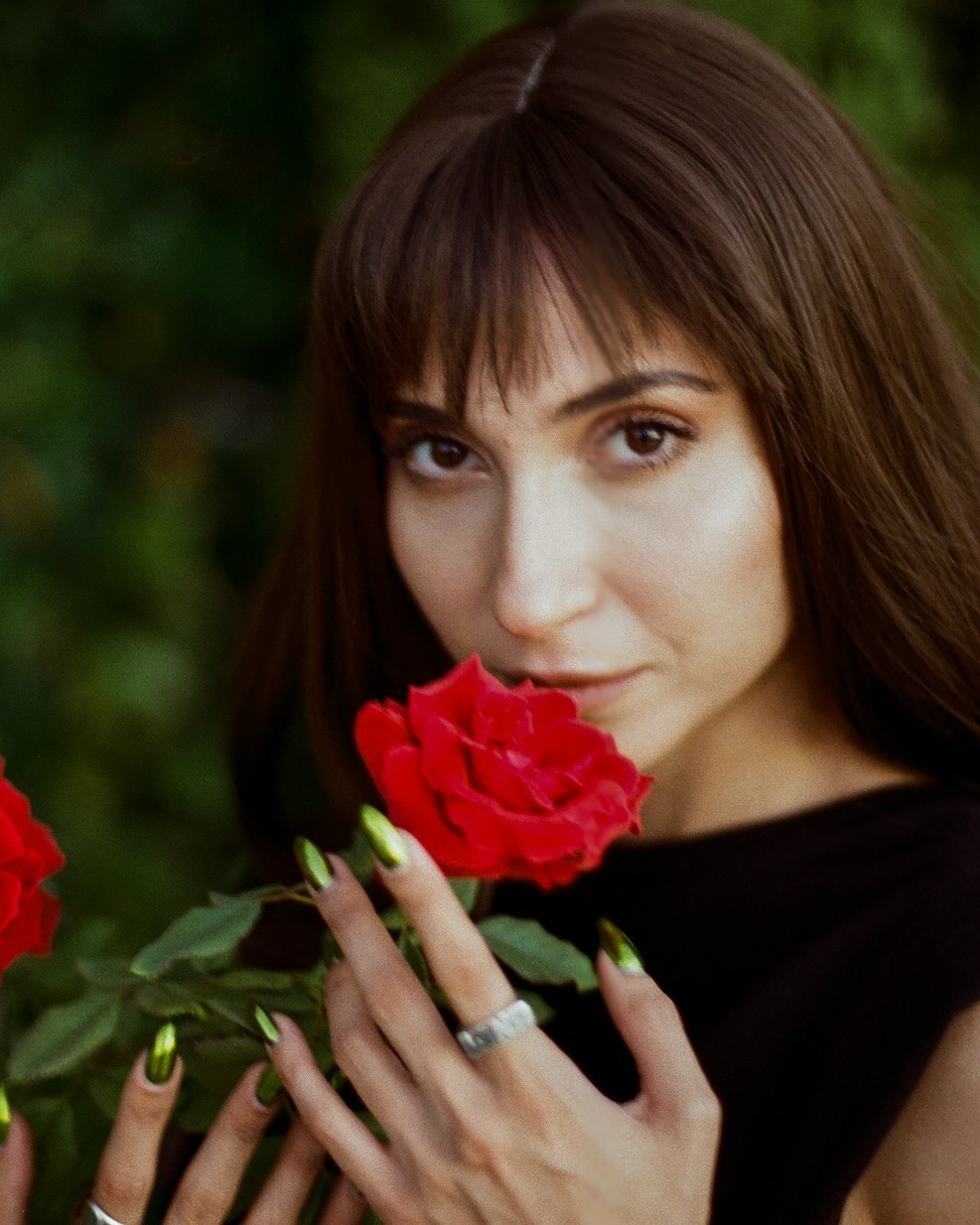
“I want to make sure that other artists don’t have to go through what I went through for 10 years to get where I got after 10 years. I want to provide guidance to young artists — I want them to work hard, to create new art — but not to have to go through all that bullshit,” she said.
Throughout her career, Makoul works hard to continue evolving as a person and translating her thoughts into music, she said.
“I have to improve on every release, from when I started with ‘Lil Abad’, to ‘3 Sneen’, ‘Salwa’, and ‘Shway Shway’ — and I can see it in terms of styling, writing, composition, direction, everything together. There’s huge progression between each one.”
“’Shway Shway’ isn’t just a song, or a statement, or a description of a particular state. It’s a dramatic change, because everyone who worked on the video, the best brains in the Palestinian scene from our generation, formed a team and did it because they wanted to be part of it. Evolution matters to them,” she explained.
“This is the energy and creativity in Palestine. ‘Shway Shway’ was done without a budget — imagine what could be done if there was money?”
As much as Makoul wants to see change in the Palestinian music scene — and in her country on a social level — she understands that it is a collective effort. While Palestinians may be shifting mentally and ideologically, it could be a while before this change happens on a physical, material level.
“I’m not going to try to free Palestine or become the head of government. I’m just doing my part through music, and carrying out my responsibilities to my people, my society and to the situation that we’re living in.”
Read more Music
Jordan News
“This is my favorite shop in Amman. Every time I come, I always get at least one or two things”, she told me. “The clothes are great, but I love shopping here because it’s ... sustainable.”
Sustainability is a theme for singer-songwriter Makoul, featuring heavily in the stories of her life and of Amman, where she works to create music.
Makoul knows first-hand what it is like to be a Palestinian living “in ‘48” — or the lands that were seized from Palestinians during the Nakba in 1948 — under occupation. “I’m not used to being in a place that’s completely Arab. (Amman), everything is in Arabic — the adverts, the street signs, and we get confused,” she said.

“We come from a place where there’s conflict between our identity and what the eye sees. We live in our land, but our land doesn’t speak our language.”
However, in Amman, Makoul has discovered new ideas of what it means to be Palestinian, to sustain that identity in a “new world” that belongs to those who migrated, generations that have not grown up in Palestine but have a particular idea of what it is like, and live the stories of how the occupation affects Palestinians, on the outside.
“Here,” she said of the capital, “(Palestinians) grew up on the ‘Old Palestine’.” In the West Bank and Gaza, on the other hand, “we’re growing up in a Palestine that we’re trying to maintain.”
“An Uber driver here once said to me ‘We (Palestinians in Jordan) are more patriotic than Palestinians in Palestine,’” the artist continued. “I replied to him saying, ‘You’re right. We’re living in Palestine, but Palestine is living in you.’ That’s the difference.”
For the artist, Amman as a place also represents and collaboration, giving hope to what can happen when Palestinians and Jordanians work together. And the artist’s career embodies this: her current producer, Nasir Al-Bashir, is a young Jordanian who operates out of Levant Studios in Amman. “It’s beautiful to work with someone who understands who and what you are, where you’ve come from and where you’re going,” Makoul said of her producer. “Amman, to me, is understanding each other.”
A silent invasion
Many picture the Israeli occupation as settlers attacking Palestinians, invading their homes and land. On the news and through social media, we see a physical resistance: throwing stones at tanks and fighting against soldiers. And while it is true that the occupation violently affects Gazans and those in the West Bank, Makoul talks of a different occupation in ’48.

“These are invaders on your land, but they’re not physically troubling you. You don’t see a tank in the street, or a soldier shooting in the middle of Akka or Haifa,” she explained. “You’ll see a soldier walking in the mall or coming out of your apartment building and that’s normal. No one talks about it.”
“We’re fighting the racism that we face every day, but you always have the guilt that you’re living a peaceful life. You feel like you’re experiencing the occupation, but you can’t explain how. Over time, I understood that the occupation in ‘48 is mental, cultural, linguistic, and intellectual, not visual.”
She referenced one of her top songs. “Like I say in ‘Shway Shway’, it’s taken me time to overcome the brainwashing. We have to go through a spiritual and patriotic awakening.”
‘In Arabic’
After winning The Voice and being launched into a music career, Makoul became deeply depressed. The day she decided to ring a lawyer to leave her label was the same day that she called up a therapist to get treatment for her mental health.
“I couldn’t write, I had writer’s block. But therapy helped me understand how I think, where my anxiety attacks come from, and how to deal with them. Through therapy, I learned to simplify complicated matters. To dive deeper instead of staying on the surface.”

Therapy allowed Makoul to overcome her depression and writer’s block and begin her journey of resistance as an independent artist. Her change in style began with language.
“Once, I was asked, ‘Why don’t you write in Arabic?’ I said ‘It’s easier for me to write in English.’ They said, ‘Are you actually just scared to sing in Arabic?’ They were right. I wrote ‘Lil Abad’ as a gift, but through this process, I decided that my music should be about my life.”
A defining moment in Makoul’s life and that of many Palestinians came in May 2021 with the Israeli attack on the Sheikh Jarrah neighborhood in East Jerusalem. Palestinian youth in ‘48 and allies around the world took to the streets to protest the Israelis’ treatment of the Palestinians. The anger they felt impacted people in different ways. For Makoul, it affected her writing process.
“It took a few months to understand how I wanted to write. It started with personal topics, and graduated to more general ones,” she explained. “I write about everything — I group concepts together, then build the song. So each song incorporates social, economic, national and political issues altogether. When I have an ability, I have a responsibility.”
A budding music scene
This motivation to use her music for the betterment of herself and her society is mirrored in the development of Palestine’s rapidly growing music scene. Artists in the country are working to establish a bona-fide industry, and Makoul is contributing to building that industry.

“I won’t leave my country for somewhere where there is an industry, just because it’s easier for me. No, I’ll do my best to build an industry there. I think as an individual, but move as a collective.”
As the independent artist began creating music once again, she expressed her collective ideals through collaborations.
“My first collaboration was “Asli Barri” with Maysa Daw, Yusor Hamid, Noel Kharman and Nancy Hawa. It was beautiful — the Arab world’s first female collaboration. It wasn’t made for commercial gain, but for charity,” Makoul reflected.
We’re fighting the racism that we face every day, but you always have the guilt that you’re living a peaceful life. You feel like you’re experiencing the occupation, but you can’t explain how. Over time, I understood that the occupation in ‘48 is mental, cultural, linguistic, and intellectual, not visual.“Here, maybe not having an industry was a good thing, because we were moved by a cause, not money. What’s more relevant than Palestinians being moved by a cause?”
But this journey is inherently difficult, and she expanded on a previous discussion we had had about the challenges of being an independent artist, especially in Palestine.
“Anxiety, lack of sleep, there’s a lot of pressure. You have to develop your brain to control eight departments as one person,” she said. “It’s insane, but possible. And I’ll say it again: therapy was key. And just to flow and trust.”
‘Doing my part’
Through flowing and trusting, Makoul is putting into action her plans regarding her music and the Palestinian industry.

“I want to make sure that other artists don’t have to go through what I went through for 10 years to get where I got after 10 years. I want to provide guidance to young artists — I want them to work hard, to create new art — but not to have to go through all that bullshit,” she said.
Throughout her career, Makoul works hard to continue evolving as a person and translating her thoughts into music, she said.
“I have to improve on every release, from when I started with ‘Lil Abad’, to ‘3 Sneen’, ‘Salwa’, and ‘Shway Shway’ — and I can see it in terms of styling, writing, composition, direction, everything together. There’s huge progression between each one.”
“’Shway Shway’ isn’t just a song, or a statement, or a description of a particular state. It’s a dramatic change, because everyone who worked on the video, the best brains in the Palestinian scene from our generation, formed a team and did it because they wanted to be part of it. Evolution matters to them,” she explained.
“This is the energy and creativity in Palestine. ‘Shway Shway’ was done without a budget — imagine what could be done if there was money?”
As much as Makoul wants to see change in the Palestinian music scene — and in her country on a social level — she understands that it is a collective effort. While Palestinians may be shifting mentally and ideologically, it could be a while before this change happens on a physical, material level.
“I’m not going to try to free Palestine or become the head of government. I’m just doing my part through music, and carrying out my responsibilities to my people, my society and to the situation that we’re living in.”
Read more Music
Jordan News

